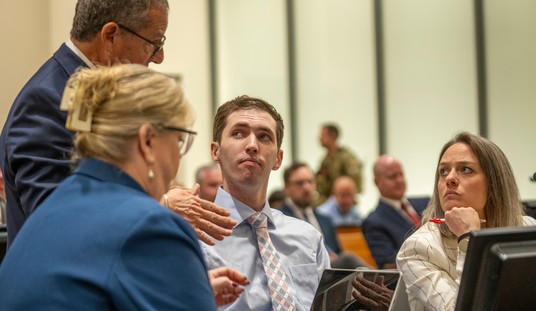There was some news out of California this week which once again brought up the subject of government restrictions of private activity based on age, this time in the form of the minimum age for smoking cigarettes and other tobacco products. The Golden State raised the age to purchase smokes to 21, matching the minimum drinking age. This has raised the usual questions about whether or not they are limiting the freedom of adults who could otherwise engage in all manner of other adult oriented behavior. In advance of the new regulation, one author at Time Magazine crafted an argument demonstrating that we’ve done similar things in the past.
On Thursday, the age at which tobacco products may be purchased in California will increase, to 21. The state’s governor, Jerry Brown, signed the bill in May, bringing California into line with Hawaii as the states with the most restrictive statewide tobacco-buying ages.
But, looking back at the history of tobacco sales in the United States, it’s clear that the idea that 18 is an appropriate age for a person to be able to buy cigarettes—or that 21 is a particularly high barrier—is a relatively new one.
In a comprehensive paper published recently in the American Journal of Public Health, Dorie E. Apollonio and Stanton A. Glantz take a look back at age restrictions on American tobacco sales, going all the way to 1863. As they discovered, age restrictions on buying cigarettes and other tobacco products are older than the average person might think, especially considering that the landmark Surgeon General’s warning on the dangers of smoking only dates to 1964. And within that early history of minimum ages, there are plenty of examples of 21-and-over laws.
I’m going to engage in a bit of a hypothetical argument as to how the government might actually end smoking without needing to attempt an overnight imposition of prohibition which would resemble the dismal failure of the 18th Amendment’s attempts to end alcohol consumption. I specify “hypothetical” here because there are all sort of reasons to argue against this 21 year age limit. Right off the bat, it smacks of the government inserting itself in place of personal responsibility. Adults in our society should remain free to make their own choices about their lives provided they are willing to deal with the consequences. (I’ll leave the second hand smoke argument of out of this one for the sake of brevity while noting that there are fair points to be made on that score in terms of health care costs to the public, communicable danger and shared risks.)
Even if you support the idea of some minimum age requirement (which is not unreasonable at all) there is still the question of consistency. Why are you old enough to join the military and die for your country as well as cast votes to elect the nation’s leaders, but not old enough to order a beer or light up a Marlboro? This clearly delves into the battle over the age at which one becomes an adult. As a society we should be able to deal with that sticky question, but we should also be able to demand that Big Brother at least pick an age where that takes place and stick with it.
But for the sake of argument, let’s say that the government should be able to wipe out the use of tobacco. (This is what they pretend to want when passing laws such as this while actually collecting vast sums of money from the tobacco industry which they couldn’t otherwise replace.) Simply making something illegal poses all sorts of challenges as we learned from prohibition and that’s particularly true when the something in question is so incredibly addictive.
With that in mind I would turn back to the example of how we originally raised the drinking age in many states. Where I lived in New York State, the drinking age had been 18. They first raised it to 19, but if you turned 18 before the law went into effect, you could keep on drinking because you were “grandfathered” in. The state later raised the age to 21 and they once again grandfathered the drinkers who were 19 before the law took effect. It went fairly smoothly. (Particularly for me because I’d turned 18 less than two months before the cut off date.)
Now let’s say that you wanted to eliminate smoking entirely. Every smoker from the age of 18 to 118 would be having nicotine fits as soon as the law went into effect and many would rebel, looking for black market sources. But what if we adopted the gradual phase-in which I referenced above? First raise the age to 19 and then raise it another year every 360 days for the next 100 years. Anyone who was old enough to smoke can keep on purchasing the products for the rest of their lives (assuming you can find them). And if you mange to live to be 118, hey… party on, pal.
Again, I’m not in favor of this type of government control, but if there’s anything in the 21st century that we can get everyone in the country to agree with it’s that smoking is unhealthy, right? Heck.. even the smokers know this. And we’ve regulated plenty of things in the past which we probably shouldn’t and we still somehow learned to live with it. This isn’t an idea to force people to stop smoking… it’s just a way to stop them from ever starting.
Would that work? Or is it doomed to failure if we tried?









Join the conversation as a VIP Member